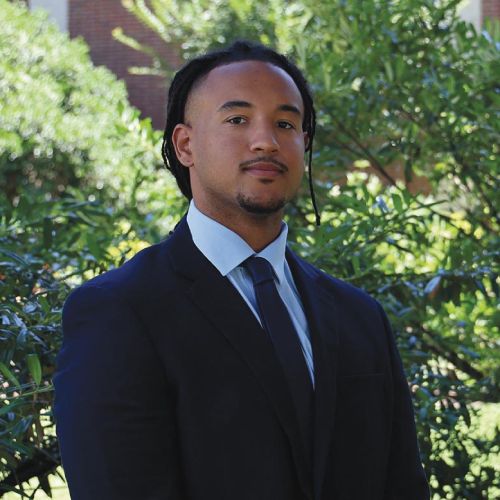
Erin Figliolino ’12
Underdog director of creative operations
To me, communication is about clarity, honesty, and alignment. It’s not just about exchanging information—it’s about ensuring understanding and fostering collaboration. I first grasped this in college, where I learned that if I didn’t clearly state my thoughts, expectations, or boundaries, things didn’t turn out the way I had planned. Whether working on group projects or building relationships, I realized that being upfront, even about uncomfortable things like missing a homework assignment or deadline, was always better than leaving people guessing. Communicating early and honestly not only built trust but also gave me more control over the outcome.
Leading teams and managing change have reinforced that good communication isn’t just about delivering a message—it’s about making sure it resonates. When guiding a team through a transition, whether it’s a new tool or a process shift, I focus on providing context, transparency, and reassurance while helping people see the benefits. Communication is about being proactive, creating clarity, and setting up myself and others for success.

Katie Oglesby ’23
NewsNation associate producer
Communication means listening to perspectives other than my own. It means inclusivity—even when I don’t agree, which is something being editor-in-chief of The Gettysburgian taught me to value above all. It means respect for all voices and opinions, and often, it means listening instead of talking.
My time at Gettysburg not only helped me become a better public speaker, team player, and advocate for myself and others, but also a better listener. That’s one of the most important parts of communication: realizing that your voice isn’t always the most important one in the room. Perhaps that’s why I like journalism so much. You’re hearing and telling other people’s stories. You’re raising people’s voices up higher than your own. The transition from local college journalism to producing national television news was surprising. Things most people don’t realize go into a TV news show make up my work. I make the graphics viewers see on air, cut the soundbites with intention, and, of course, listen to the guests tell their stories and let viewers make up their own minds.
Communication is more than using our words. I think that’s one of the best lessons I’ve learned.

Chris Singleton Jr. ’24
Georgetown Preparatory School admissions counselor
During my time at Gettysburg, I underwent significant personal growth and maturity, shaping me into the person I strive to be today. The foundation of gratitude, work ethic, and accountability that I developed there has helped me to continue striving to be the best version of myself. A key component of that journey has been communication.
As a two-time captain of the football team during my junior and senior years, I learned the importance of communicating effectively with individuals from diverse backgrounds and personalities. The most crucial aspect of communication, no matter the field, is authenticity—practicing what you preach.
Now, as an admissions counselor, football coach, and residential dorm parent at my high school alma mater, Georgetown Prep, I rely heavily on the communication skills I developed to help guide students toward a bright future. I am deeply grateful for the experiences and lessons I gained at Gettysburg which continue to shape my work today.

Jim Udden
Cinema and media studies professor
If there is one thing I have learned in the process of creating the communication studies major it is that defining the word communication is like peeling an onion. Every academic field teaches some form of communication. Teaching and scholarship inevitably involve communication. A core aspect of any liberal arts education is how to effectively communicate.
What makes communication studies a distinct academic field? Even my field of film and media studies can be considered a branch of communication studies, yet this field has its distinct set of approaches and methodologies.
When it comes to communication studies, there is no set template. No two programs were alike at the undergraduate or graduate level. Nevertheless, most undergraduate programs try to include some theory, analysis, and practices.
The goal of this major is to focus on the nature of communication itself, to understand the contexts in which it is used, to understand who your audience is, and to have a chance to put these principles into practice. This is one major that can potentially link up with every department and program here at Gettysburg College.

Jamie Yates
Gettysburg College chief communications and marketing officer
There’s a premise that someone has to hear something seven times before it sticks. It’s not surprising—we are inundated with more news and information than ever. Attention spans are shrinking. While repetition is important, even more critical to being an effective communicator is the ability to listen.
Communication can sometimes be seen as only an outward act: What do I want to convey to you? The best communicators know that listening comes first—listening is discovery. It allows us to understand others, find common ground, and build real connections. Without listening, how do you know what, how, and when to best communicate?
This principle guides my work—listening to and understanding our audiences so we can communicate in ways that truly resonate. It’s just as critical in everyday interactions too.
Being a great communicator isn’t about finding the perfect turn of words—it’s about connection. Connection begins with listening. The ability to be an effective communicator can be learned and strengthened, but it starts with a willingness to listen and understand.